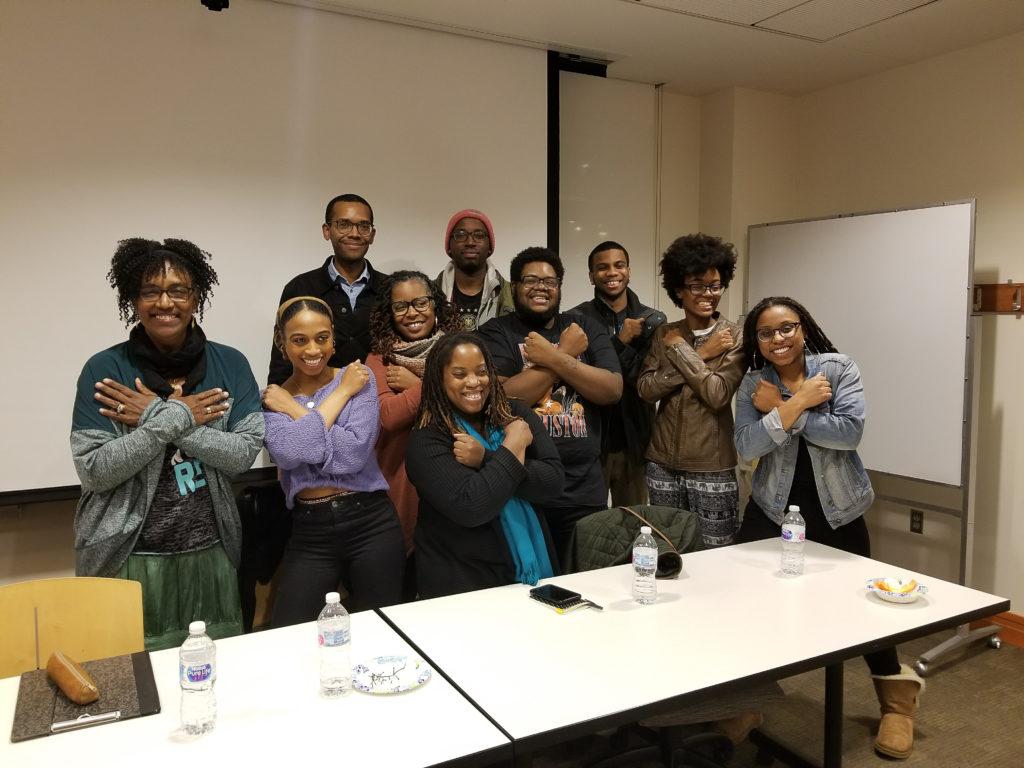By Lauren Miller
millerla@grinnell.edu
On Thursday, March 1, the education department’s student educational policy committee (SEPC) sponsored a Black educators panel to communicate the experiences of Black professors at Grinnell College, a predominately white institution.
The event was planned as part of Black History Month, and SEPC students reached out to Black professors across departments to represent the panel.
“We were really intentional about getting professors from different disciplines,” said SEPC member Jherron Sutton ’18.
Not only did professor representation span across disciplines, but student attendance did as well.
“It was really nice to see students in the sciences, because we wanted to make sure they felt represented in the panel since there aren’t that many … Black students in the sciences,” Sutton said.
After the panel participants answered several questions prepared by the SEPC, the panel allowed for questions from the audience.
The focus of the discussion was mostly on the identities of the professors, and “how their Blackness influenced their careers and their roles in academia and how they see themselves,” according to SEPC member Christian Clark ’18.
“It was everything,” said Stephanie Jones, education, who participated on the panel. “It’s easy to assume all Black professors are the same … but though we share a common ‘Blackness,’ everyone has a different take on how they see themselves.”
Black professors span across all academic divisions, Jones pointed out.
“It was important for people to see we exist, and we exist across all divisions.”
As for the role of Black educators in particular, Jones described how Professor Kesho Scott, sociology, spoke about the role of being an advocate for students of color on campus. “We sit at tables you may not necessarily have access to.”
Jones also highlighted the importance of this being a student-led initiative, after a group of SEPC students reached out to Black professors to participate on the panel.
Looking forward, Jones said “I’m excited to participate in any way possible,” in regard to the potential of another panel in the future.
The event was meaningful to many groups on campus, yet perhaps felt most imminently by one group in particular.
“The people who immediately asked the questions were Black women, the most feedback I’ve heard has been from Black women. … For Black women in general, this event was really impactful,” said SEPC member Ashley Jackson ’18.
The education SEPC is planning more events this semester.
“We are just working to make education and this school so much more inclusive and so much more representative of the students here, especially in the education department,” Clark said.
The current education SEPC will be graduating in 2018, and the new SEPC students will have a solid framework to work from.
“It means a lot for us to set the groundwork. … We refuse to go back,” Jackson said.




































































